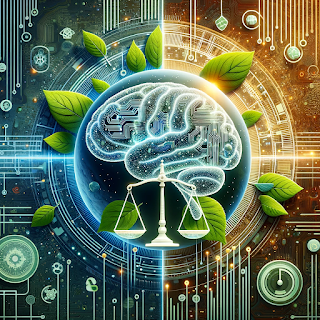Tech for Tomorrow: How AI is Powering Sustainable Development
In the competition to solve the planet's most crucial environmental and societal issues, a single technology emerged as both accelerator and guidepost: Artificial Intelligence (AI). What was a science fiction premise is now an agent of revolution reshaping our strategy for sustainable development — ranging from climate and clean energy to smart agriculture and circular economies.
AI Meets the Sustainable Development Goals (SDGs)
The 17 Sustainable Development Goals (SDGs) of the United Nations offer a worldwide framework to address poverty, inequality, environmental degradation, and others by 2030. AI has become an essential tool in speeding up progress towards these goals. Let's see how:
1. Climate Change Mitigation
AI is being used to process climate data, simulate emissions scenarios, and optimize energy systems. Google DeepMind's AI recently optimized the energy efficiency of data centers by 30%, demonstrating the huge potential optimization algorithms have to cut carbon footprints.
2. Smart Agriculture
AI-based systems are assisting farmers in making data-driven decisions — tracking crop health via drones, forecasting weather patterns, and streamlining irrigation. Not only does this increase productivity, but it also saves valuable resources such as water and soil.
3. Clean and Efficient Energy
By means of predictive maintenance, load forecasting, and energy usage modeling, AI is transforming the way we generate, store, and transmit renewable energy. AI-based grids are able to adjust instantly to demand and supply, minimizing waste and maximizing the utilization of clean energy.
4. Sustainable Cities and Infrastructure
AI powers smart traffic systems, waste management, and energy-efficient buildings — all essential to sustainable urban development. Singapore and Amsterdam are already utilizing AI to alleviate traffic congestion and lower pollution levels.
5. Biodiversity and Conservation
Artificial intelligence platforms such as machine-learning-driven camera traps are discovering species, following wildlife, and flagging illicit poaching in real-time. Non-government organizations are applying artificial intelligence to document deforestation and track ecosystems remotely with record-breaking precision.



Comments
Post a Comment